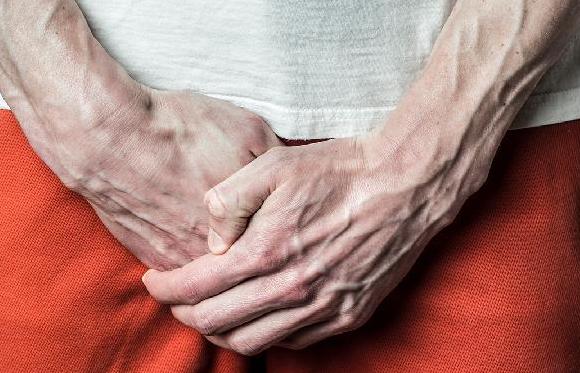Chronic Prostatitis Is Accompanied by Chronic Pelvic Pain, How to Relieve It?
Date:2022-10-28 click:0
Prostatitis is a common male urological disease. If the patients are not treated timely or thoroughly, it can easily develop into chronic prostatitis and may cause a series of complications, undoubtedly bringing a lot of pain to the patients' life and work. One of these complications is chronic pelvic pain, a painful complication brought on by prostate inflammation.

To alleviate this problem, patients should not only go to the hospital for timely examination and treatment but also change their bad habits in daily life that may aggravate the condition. At the same time, taking traditional Chinese medicine Diuretic and Anti-inflammatory Pill will have a perfect therapeutic effect.
For prostatitis, it is important to determine if it is caused by bacterial inflammation based on examination indicators. Prostatitis is mostly caused by a urinary tract infection. The typical symptoms of prostatitis are usually frequent, painful, urgent urination, pain and discomfort in the pelvic area, abnormal urination and sexual dysfunction, etc. The infection can manifest as fever, chills, nausea, vomiting, and even sepsis if the infection is acute. The doctor will usually recommend a rectal exam or a prostate fluid test. Just listen to the doctor's assessment based on the examination results and choose the appropriate treatment, don't worry too much.
When noticing uncomfortable symptoms in the urinary system, patients need to seek medical attention early. Otherwise, it can easily evolve into chronic prostatitis. This will make it difficult to eliminate the uncomfortable symptoms quickly. For example, patients may have psychoneurological symptoms, such as dizziness, head swelling, weakness, fatigue, and insomnia.
They may also have urinary symptoms, such as white dripping from the urethra; and they may have persistent chronic pelvic pain due to frequent irritation from the inflammation and urethra. Generally, chronic prostatitis does not require surgical management, as surgery will not be effective either. The pain varies from person to person as each person has a different pain nerve.
In the case of pelvic pain accompanied by chronic prostatitis, the following measures can be used for relief.
1. Medication
People can select sensitive antibacterial medicine to control inflammation for chronic bacterial prostatitis based on bacterial culture results and medicine sensitivity tests. Commonly used antibacterial drugs include Levofloxacin, Azithromycin, Doxycycline, etc. In the case of non-bacterial chronic prostatitis, alpha-blockers can be used to relax the prostate muscles and improve painful or obstructive urination symptoms.
For chronic diseases, doctors usually recommend using herbal physical therapy to have good results without surgery and toxic side effects. For example, patients can choose the traditional Chinese medicine Diuretic and Anti-inflammatory Pill. This medicine has broad-spectrum antibacterial properties. It can clear heat and detoxify the body, pass lymphatic diuresis, and have a good effect on relieving inflammation of the male reproductive system.
2. Physical Therapy
The thermal effect produced by various physical means such as microwaves, radio frequency, and laser accelerates the blood circulation of the prostate tissue. It promotes metabolism, eliminates inflammation and tissue edema, and relieves pelvic floor muscle spasms. These can alleviate patients' discomfort to a certain extent.
At the same time, patients can use a warm water bath and medicine such as prostate plugs and anti-inflammatory pain plugs inserted into the anus for relief. A warm water sitz bath can reduce prostate congestion and help get relief from anterior pelvic pain. Prostate security suppositories, anti-inflammatory pain suppositories, and other medications are inserted through the anus once a day and can relieve the pelvic pain caused by prostatitis.
Patients should also not sit or ride for extended periods. They should pay attention to their diet and not eat spicy and irritating foods. Quit smoking, and alcohol is suggested. They should not exercise strenuously, and activities that can aggravate the disease and discomforts, such as bicycling, should be avoided as much as possible.
Recommended Readings:



